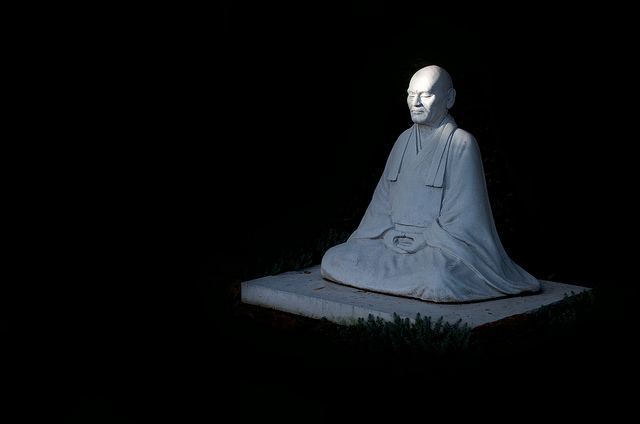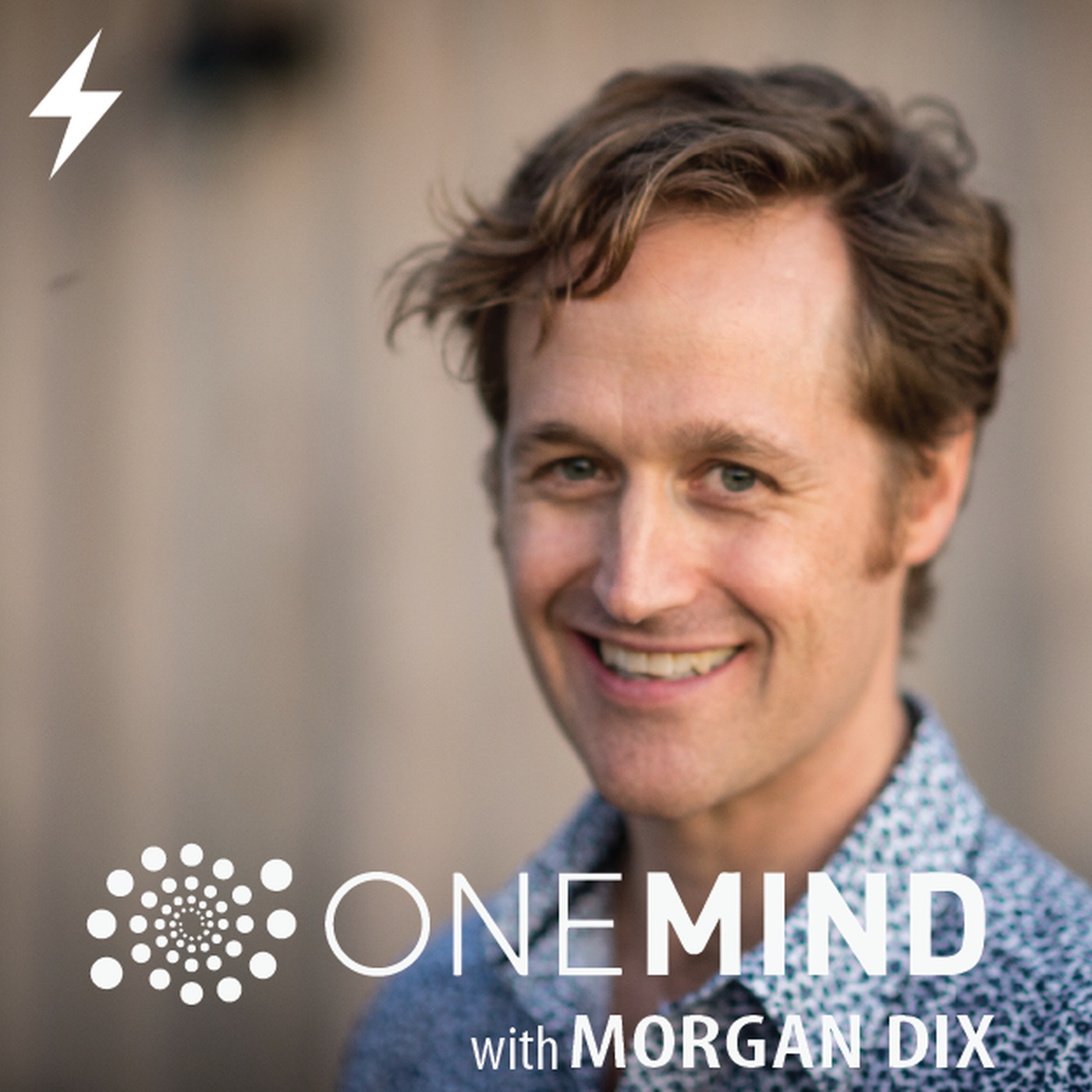
Recently I was interviewed by meditator and entrepreneur Sonia Thompson on the subject of meditation. Sonia is a good friend and she asked some very insightful questions.
In fact, Sonia’s questions were so closely aligned with the most popular questions we receive here at AboutMeditation.com that I decided to dedicate this episode of the podcast to answering them for you.
A lot of these questions cover the ABC’s of meditation. But even if you’re a seasoned meditator, I think you’ll appreciate revisiting some of these basic principles in more depth, because they never get old.
Here are seven questions about meditation that everyone asks with a super brief summary of my response to each question. I answer each of these questions and provide context in much greater detail in the audio podcast.
Seven Questions About Meditation That Everyone Asks
1. What exactly is meditation?
Meditation is training for your attention. It’s a process and a practice. You can think of your meditation practice as a gym membership for your mind. You build the muscles of your attention through meditation. By focusing on one thing, like your breath, and repeatedly bringing your attention back to that anchor, you strengthen that muscle. That forms the basis for an empowering and enlightening process that starts to unfold within you.
2. What’s the difference between meditation and mindfulness?
Mindfulness is meditation in action. It’s the deliberate practice of present moment awareness.It’s noticing and being attentive to whatever’s happening. For example, washing the dishes. Being attentive to the sensation of the water. The ambient soundscape around you. The feeling of being rooted and standing at the sink. The tendency of your mind to drift away. Mindfulness means practicing a refined and subtle form of paying attention to everything you do.
3. What are the benefits of meditation?
We can come at this from a few different angles.
Physical: Studies show that meditation helps you relax, lowers your blood pressure, neutralizes and even reverses the effects of stress, decreases blood cortisol levels, helps with irritable bowel syndrome and digestion, and it can help you sleep better.
Emotional: Meditation stimulates you relaxation response and helps calibrate your emotional state. It helps you achieve a deeper emotional equilibrium as you find a deeper ground of stability beneath or beyond the daily ups and downs. In essence, it helps you become emotionally centered and grounded.
Mental: Neuroscience studies show that 8 weeks of Mindfulness-Based Stress Reduction (MBSR) grows the grey matter in your brain, increases focus, and increases productivity.
Spiritual: Through meditation, you discover a part of yourself that is unlimited and unrestricted. You slowly but surely develop a sense of connection with everything. You find that sense of connection and wholeness through a very simplified stripped down state of being. In that experience of being, you understand at some core level that everything is fine just as it is.
4. Is meditation something that should be practiced daily? Can you get the benefits of it if you don’t do it everyday?
The ideal is to meditate every day. Why?It’s important to build momentum. Like any skill you’re trying to develop, you won’t grown in the practice without commitment. Daily practice is best, and you can derive real benefits with just 3-5 min a day.
5. What are the common misconceptions people have about meditation?
- That a busy mind makes you a bad meditator.
- That meditation is only for a particular kind of person.
- That your mind shouldn’t wander, because it will.
- That you have to meditate for an hour every day to get benefits.
- That you don’t have enough time.
6. Is there an ideal amount of time new meditators need to engage in this practice before it becomes something that they “get” or start to see benefits from?
It’s different for everyone. I meet people who have a big A-HA moment the very first time they meditate. For other people, like me, it may take much longer.
7. Should meditation be a structured practice?Are there times of day, postures, or targeted timing that should be devoted to practice?
Ideally yes. Because, in the beginning, you want to create a habit out of it and the best way to do that is through rote structure. Pick a cue, establish a routine, and be clear about the reward you want from it. The cue for me is my cup of coffee in the morning. You can learn more about how to create a meditation habit here.

Show Notes
- If you enjoyed this podcast, you may also like the Meditation for Life Mini Course
- Learn more about free awareness meditation with How To Free Your Mind & Discover Deep Peace
- Take a self-paced introduction to Meditation and explore theMeditation For Life Core Training Program
- Leave us a rating & review on iTunes
Hi Morgan asked your views on transcendal meditation a while ago having not long invested In its practice, you replied to research it. So wish I’d found trueblog and Paul Masons findings b4 paying out double. fees for me and my daughter. I as so many others before me have been naively sucked into TM.orgs meaningless teachings -guess you live and learn, if it sounds too good to be true, it’s because it isn’t.
Hi Jay,
Thanks for writing. Yes, I remember. You told me you had signed up for a TM course and asked my advice as to whether you should continue given how expensive it is. I said I’d never taken the course, but that I also heard it was expensive but also effective. I encouraged you to follow your interest and see if it panned out given the incredible track record of TM.
It sounds like it didn’t work out at all. I’m really sorry to hear that. It does seem super overpriced. I appreciate you sharing that information with everyone and sounding a cautionary note. It sounds like you felt like you were taken advantage of. I don’t the work of Paul Mason Trueblog. I’ll check it out. Thanks again and good luck!
Sorry it’s TM+FreeBlogs Skeptical views of TM+Mararishi Mahesh yogi, check it out and tell me what you think
Thanks Jay. Will do.
Nice, Esperanza
Thanks Esperanza. I’m glad you liked it 🙂
Whenever i meditate my mind wanders more fiercely than it usually does. I can say that in 10 mins of meditation i actually do it for just 30 seconds, rest of the time its just a fight with the anxiety and thoughts, is that okay for a beginner.
Hi Ankit,
Yes. You might find it a surprise, but that’s very common. I talk about this very phenomenon in an earlier episode, which you can check out here: https://aboutmeditation.com/podcast/the-art-of-doing-nothing/.
But yes, often what’s happening when you are starting out is that as you make the effort to relax and be quiet and still, you are confronted with the normal momentum of your mind. And that can be pretty overwhelming. But most of the time we are unaware of this because we’re always moving from one thing to another and we’re so hyper-stimulated and busy, it goes unnoticed. So that can create the effect you’re talking about, when it feels like your mind is more on hyperdrive when you’re meditating versus when you’re not.
For now, I recommend just letting that be and try not to fight it. In time, it will pass and you’ll get more comfortable with stillness and you’ll start to sink below all the noise. You’ll also learn how to not resist or fight the uncomfortable feelings that can arise. But that does take time and practice.
Does that all make sense to you?
Hi Morgan, As usual you know your work!
And yes we are enough ?
Thanks so much Margarita! Happy holidays 🙂
Hi Morgan,
Great job. I´m following you since may or june. I really like your podcasts, they are fantastic.
No matter how many time you are meditating, it´s great remember basic thing about it.
I started to meditate in the morning, now I´ve found time to do it before go to sleep too. Meditate in the morning help to start the day with a open, relaxed mind. At nigth, you can do a balance of the day and let go things that you don´t need, and sleep better. 🙂
Hi Deborah, Thanks so much for your kind feedback and I’m really glad to hear that you’re benefitting from the podcast. And yes, I couldn’t agree more. It’s so helpful to return to the basics with meditation. I really like how you describe meditating at night and letting go of the things that you don’t need. That’s an awesome way to think about it. Thanks!
Meditate just for the knowing fact that it will improve your life. Don’t worry if you can do it easily at first. Compare yourself to a newborn baby. Babies don’t hit the ground running its a process of trial and error. Focus on the trial not the error. Meditate just because it will for sure improve your life. Even if it is challenging at first. Just do it. Think less and feel more.
But how do you know when you’re doing it right or when you’re doing it wrong? A lot of the time I feel like I’m just sitting there not really accomplishing anything. And I get the feeling like after I’m done I should feel different somehow, but I just feel the same. I just wish there was some sort of signal that tells me “you just meditated properly”
Hi Mercury,
That’s a great question. How do you know? It’s a tricky question to answer, but one that we’ve spent a lot of time addressing in the podcast. There’s a great quote from Sharon Salzberg that I cite often that gets right to the heart of the question. It goes something like this:
“Meditation is not about the experience you have, but how you relate to that experience.”
The challenging thing about this quote is that it captures the essence of meditation being a mirror and not any kind of specific experience. There is no “right” experience to have. It’s more about learning how to be at ease with whatever experience we have. And that takes a lot of practice, as it sounds like you are finding for yourself.
Check out these two episode of the podcast and let me know if they help you with your question:
https://aboutmeditation.com/podcast/the-art-of-doing-nothing/
https://aboutmeditation.com/podcast/the-golden-rule-of-meditation/
Thanks Erik. Well said 🙂
Thanks for answering the most sought questions. I am just starting to mediated, and I must say your answers provided me better clarity. Thanks again!
Great Naveen. Glad it helped.
It’s interesting to see how meditating consistently could have a variety of health benefits, including being less stressed and more productive. My wife and I have had a crazy year or so and we’ve been thinking of doing something to manage things a bit better. Maybe we should look into ways that we could start learning to meditate effectively.
Hi Oscar, I can’t argue with that! I would go for it.